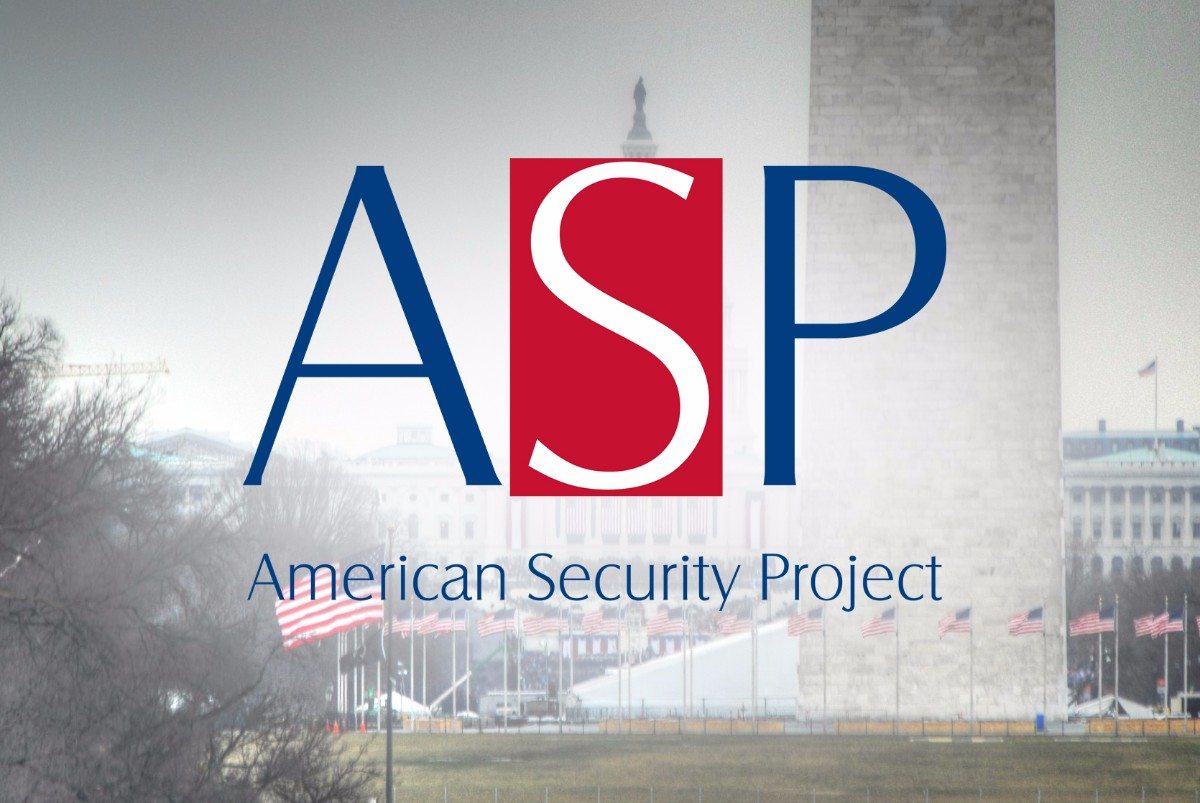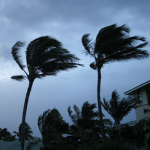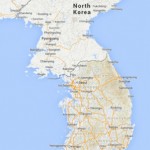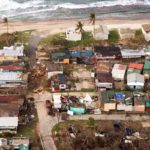
ASP’s Top Stories of 2017
Its been a long and interesting year in issues that the American Security Project covers. As everyone here in Washington slouches towards the holidays, waiting to see what will be born in 2018, it is a good time to reflect on the year that was. The top ten most-read new articles on ASP’s blog give a good cross-section of what national security issues we cared about in Washington this year, and what ASP has focused on.
Climate Security
 The top new blog post of 2017 was a blog post about how the Republican Congress was taking the threat of climate change to national security seriously: Congress Affirms Climate Change Threatens Security – Asks for Military to Prepare. Originally written in July, and updated through the year, the post showed the progression of an Amendment to the National Defense Authorization Act calling for the military to report on their actions to prepare for climate change. Other important posts on this topic this year included an Interactive Map assessing the Vulnerability of America’s Military Bases to Climate Change, how to find a place for Climate Refugees, how climate change threatens the military bases in Guam, and of course summaries of ASP’s climate security events in Arizona, North Carolina, Las Vegas, and Capitol Hill.
The top new blog post of 2017 was a blog post about how the Republican Congress was taking the threat of climate change to national security seriously: Congress Affirms Climate Change Threatens Security – Asks for Military to Prepare. Originally written in July, and updated through the year, the post showed the progression of an Amendment to the National Defense Authorization Act calling for the military to report on their actions to prepare for climate change. Other important posts on this topic this year included an Interactive Map assessing the Vulnerability of America’s Military Bases to Climate Change, how to find a place for Climate Refugees, how climate change threatens the military bases in Guam, and of course summaries of ASP’s climate security events in Arizona, North Carolina, Las Vegas, and Capitol Hill.
Read more about ASP’s Climate Security work.
Russia
 The second most read new blog post of 2017 was the announcement of ASP’s new Russian military incident tracker. This open-source article provides a constantly updated map that highlights the growing escalation of close military encounters between Russian military units against American and allied units. The popularity of this post signifies how U.S.-Russia relations remained at the center of political and security debates this year. On Russia issues, ASP was busy this year, releasing a comprehensive report on possible areas for US-Russia cooperation along with the November release of our White Paper outlining recommendations for the US Foreign Policy towards Russia. Further Russia work included how The CSTO is a military pact to defend Russian Influence, a perspective about the Russian National Guard, a Fact Sheet about Russian Social Media Information Operations and discussions about Russian propeganda.
The second most read new blog post of 2017 was the announcement of ASP’s new Russian military incident tracker. This open-source article provides a constantly updated map that highlights the growing escalation of close military encounters between Russian military units against American and allied units. The popularity of this post signifies how U.S.-Russia relations remained at the center of political and security debates this year. On Russia issues, ASP was busy this year, releasing a comprehensive report on possible areas for US-Russia cooperation along with the November release of our White Paper outlining recommendations for the US Foreign Policy towards Russia. Further Russia work included how The CSTO is a military pact to defend Russian Influence, a perspective about the Russian National Guard, a Fact Sheet about Russian Social Media Information Operations and discussions about Russian propeganda.
Read more about ASP’s Russia Relations work.
North Korea
 The third most read blog post from 2017 was a discussion about the United States’ deployment of the Terminal High Altitude Area Defense (THAAD) system to South Korea. As tensions and dangers on the Korean peninsula ratcheted upwards throughout the year, ASP had a robust discussion about options and pathways to avoid conflict between the US and North Korea over their nuclear weapons program. Other posts noted that the North Korea Problem is unsolvable without the Iran nuclear deal, how Russian Putin was becoming more involved on the Korean Peninsula, how American rhetoric against Kim Jong Un was a Song of Fire, but without the ice, and positing an alternative to military intervention in North Korea.
The third most read blog post from 2017 was a discussion about the United States’ deployment of the Terminal High Altitude Area Defense (THAAD) system to South Korea. As tensions and dangers on the Korean peninsula ratcheted upwards throughout the year, ASP had a robust discussion about options and pathways to avoid conflict between the US and North Korea over their nuclear weapons program. Other posts noted that the North Korea Problem is unsolvable without the Iran nuclear deal, how Russian Putin was becoming more involved on the Korean Peninsula, how American rhetoric against Kim Jong Un was a Song of Fire, but without the ice, and positing an alternative to military intervention in North Korea.
China
 The fourth and fifth most popular new blog posts were about China’s One Belt-One Road policy. On May 14, China’s President Xi hosted over 30 heads of state for the Belt and Road summit in Beijing. On ASP’s blog, we noted how China’s One Belt, One Road was An Ambitious Strategy Challenging the U.S., and then we suggested that infrastructure investment should be Americas Response to China’s One Belt, One Road. Other posts about China noted how India and China were Drifting towards Danger over their Border Conflicts, that Trump Must Trade with Allies if He Wants to Challenge China, and The Trump Administration Must Remain Vigilant & Engaged in the South China Sea.
The fourth and fifth most popular new blog posts were about China’s One Belt-One Road policy. On May 14, China’s President Xi hosted over 30 heads of state for the Belt and Road summit in Beijing. On ASP’s blog, we noted how China’s One Belt, One Road was An Ambitious Strategy Challenging the U.S., and then we suggested that infrastructure investment should be Americas Response to China’s One Belt, One Road. Other posts about China noted how India and China were Drifting towards Danger over their Border Conflicts, that Trump Must Trade with Allies if He Wants to Challenge China, and The Trump Administration Must Remain Vigilant & Engaged in the South China Sea.
Africa
 The fifth, sixth, and seventh most-read new posts of 2017 were all about different aspects of security, policy, and international relations in Africa. The first is a report post about the world’s most overlooked crisis, the famine in Nigeria, South Sudan, Somalia, and Yemen. Our report shows How to Prevent the World’s Next Refugee Crisis, one that would make the 2015 crisis look tiny. The second post examines the nearly complete Grand Ethiopian Renaissance Dam, and the Power Dynamics of the Nile River Basin. Finally, ASP asks what principles the U.S. should have in its policy towards Africa, calling the U.S. An Elephant in Africa.
The fifth, sixth, and seventh most-read new posts of 2017 were all about different aspects of security, policy, and international relations in Africa. The first is a report post about the world’s most overlooked crisis, the famine in Nigeria, South Sudan, Somalia, and Yemen. Our report shows How to Prevent the World’s Next Refugee Crisis, one that would make the 2015 crisis look tiny. The second post examines the nearly complete Grand Ethiopian Renaissance Dam, and the Power Dynamics of the Nile River Basin. Finally, ASP asks what principles the U.S. should have in its policy towards Africa, calling the U.S. An Elephant in Africa.
Fusion Energy

ASP’s continued focus on fusion energy continues with an examination of the Prospect of Fusion Energy, asking if Fusion is destine to always be in the future. It concludes that fusion is possible, and, with good policy, could come soon. Indeed, it may be an Inevitable Industry, as another post describes it. A further post describes why the world needs Clean energy sources beyond renewables. Two posts describe major advances in fusion, one at MIT, and one by Tri Alpha. Finally, ASP was pleased to launch the American Fusion Project as a new initiative, led by the incipient fusion industry.
Cuba
 On March 14 an American Security Project-led delegation departed on a four day fact-finding trip to Havana, Cuba. The delegation included retired flag officers from across the services. Upon their return from Havana, ASP organized a letter signed by 16 flag officers, sent to National Security Adviser McMaster. They discussed why the U.S. should continue their engagement with Cuba on Capitol Hill. For an article in Politico, delegation members described why undoing the opening to Cuba would harm national security. A further article discussed how U.S. inattention to Cuba is opening space for adversaries like China, Russia, and Venezuela right on America’s “Third Border.” Finally, in June ASP expressed deep disappointment with the Trump Administration’s announcement on changes to Cuba policy.
On March 14 an American Security Project-led delegation departed on a four day fact-finding trip to Havana, Cuba. The delegation included retired flag officers from across the services. Upon their return from Havana, ASP organized a letter signed by 16 flag officers, sent to National Security Adviser McMaster. They discussed why the U.S. should continue their engagement with Cuba on Capitol Hill. For an article in Politico, delegation members described why undoing the opening to Cuba would harm national security. A further article discussed how U.S. inattention to Cuba is opening space for adversaries like China, Russia, and Venezuela right on America’s “Third Border.” Finally, in June ASP expressed deep disappointment with the Trump Administration’s announcement on changes to Cuba policy.
Read more about ASP’s Cuba Program: Pathways to the Future of US-Cuba Relations
Puerto Rico and the Caribbean
 On September 20, Hurricane Maria made landfall in Puerto Rico as a Category 4 Hurricane, bringing widespread destruction and heavy rains. ASP has a long and demonstrated interest in building security in the Caribbean through energy innovation and environmental sustainability. Immediately after the hurricane, the most-read story on ASP was how to Apply the Disaster 4Rs to Puerto Rico After Hurricane Maria. ASP also hosted a discussion on how to “Build Back Better.” ASP CEO Brigadier General Stephen A. Cheney, USMC (ret.) teamed up with ASP Chair of the Business Counsel Dante Disparte to write an op-ed for The Hill that outlines three distinct steps the U.S can take to build back better in Puerto Rico following the devastating effects of Hurricane Maria. In a cruel irony, earlier in the year, ASP had outlined “Puerto Rico’s Next Step” on how to recover from their decade-long debt crisis. Finally, in December, ASP outlined a new initiative, the Caribbean Climate Smart Coalition, that would drive investment for resilience and sustainability into the region.
On September 20, Hurricane Maria made landfall in Puerto Rico as a Category 4 Hurricane, bringing widespread destruction and heavy rains. ASP has a long and demonstrated interest in building security in the Caribbean through energy innovation and environmental sustainability. Immediately after the hurricane, the most-read story on ASP was how to Apply the Disaster 4Rs to Puerto Rico After Hurricane Maria. ASP also hosted a discussion on how to “Build Back Better.” ASP CEO Brigadier General Stephen A. Cheney, USMC (ret.) teamed up with ASP Chair of the Business Counsel Dante Disparte to write an op-ed for The Hill that outlines three distinct steps the U.S can take to build back better in Puerto Rico following the devastating effects of Hurricane Maria. In a cruel irony, earlier in the year, ASP had outlined “Puerto Rico’s Next Step” on how to recover from their decade-long debt crisis. Finally, in December, ASP outlined a new initiative, the Caribbean Climate Smart Coalition, that would drive investment for resilience and sustainability into the region.







